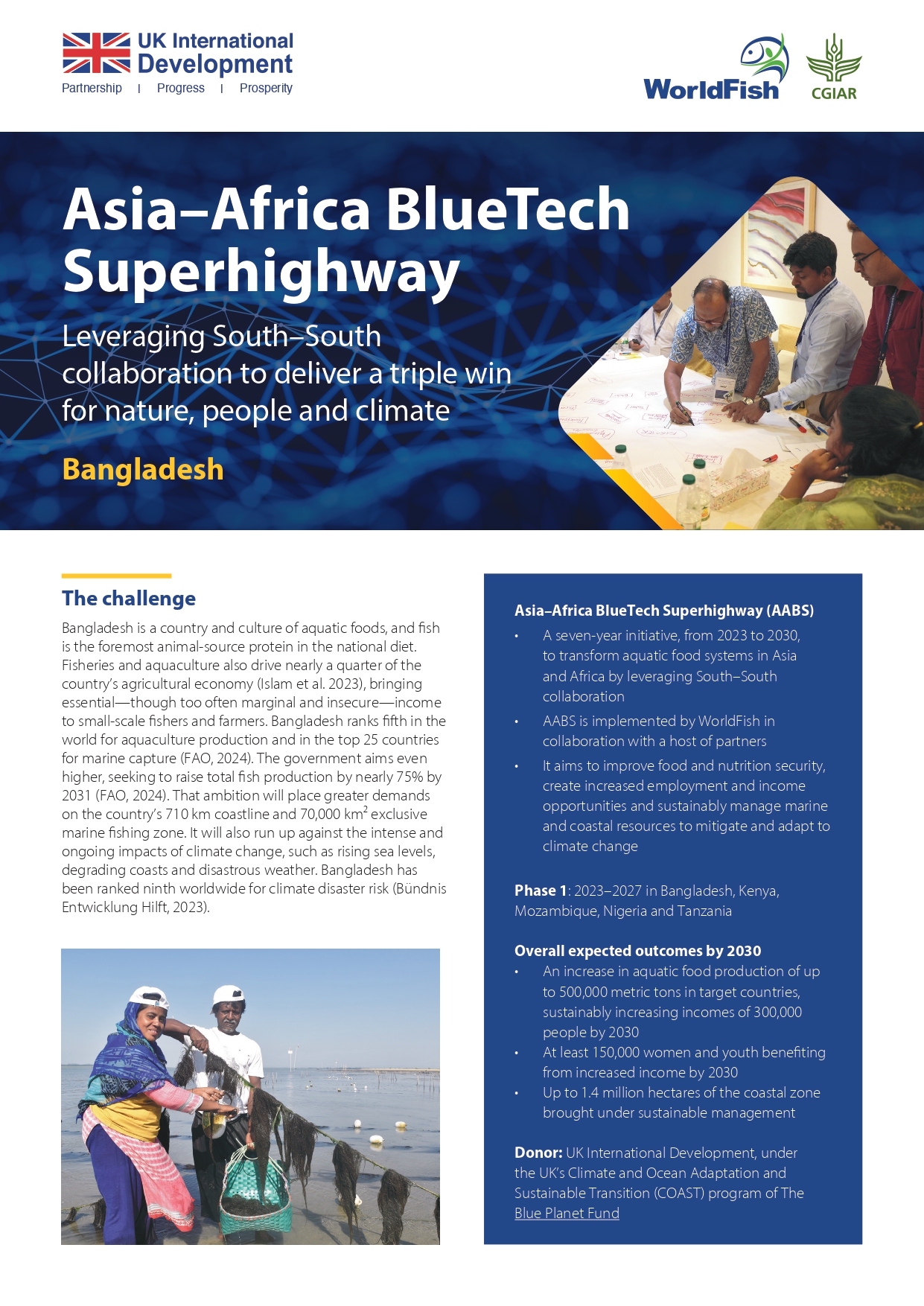The challenge for Bangladesh’s aquatic food systems and climate resilience
Bangladesh is a country and culture of aquatic foods, and fish is the foremost animal-source protein in the national diet. Fisheries and aquaculture also drive nearly a quarter of the country’s agricultural economy, bringing essential—though too often marginal and insecure—income to small-scale fishers and farmers. Bangladesh ranks fifth in aquaculture production and in the top 25 countries for marine capture. The government aims even higher, seeking to raise total fish production by nearly 75% by 2031. That ambition will place greater demands on the country’s 710 km coastline and 70,000 km² exclusive marine fishing zone. It will also run up against the intense and ongoing impacts of climate change, such as rising sea levels, degrading coasts and disastrous weather. Bangladesh has been ranked ninth worldwide for climate disaster risk.
The solution: Asia–Africa BlueTech Superhighway in Bangladesh
Asia–Africa BlueTech Superhighway (AABS) will help Bangladesh address its fisheries and aquaculture challenges by leveraging South–South collaboration to improve sustainability, resilience and prosperity in coastal communities. Through evidence-based models and partnerships, AABS will enhance the adaptive capacities of small-scale fish workers and farmers, mitigating the effects of climate change and increasing the sustainability of fish production. By focusing on Bangladesh’s vulnerable coastal regions, the initiative will not only support the government’s goals but also ensure that the livelihoods of these communities are more secure and equitable.
AABS is implementing two key areas of work in Bangladesh:
- Integrated Multi-Trophic Aquaculture (IMTA)—adapting and implementing IMTA tailored to local context in Asia and Africa.
- Climate-Smart Technologies for Reducing Aquatic Food Loss and Waste—scaling affordable, accessible climate-smart food preservation, processing and storage technologies to reduce aquatic food loss and waste.
